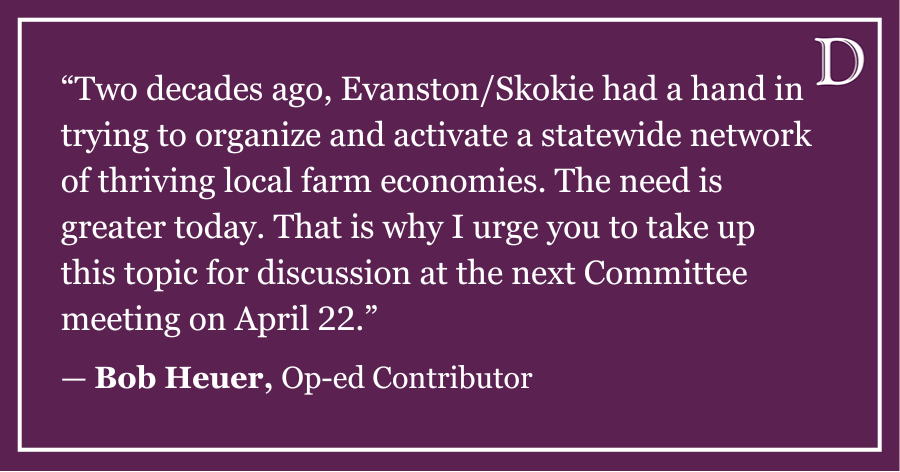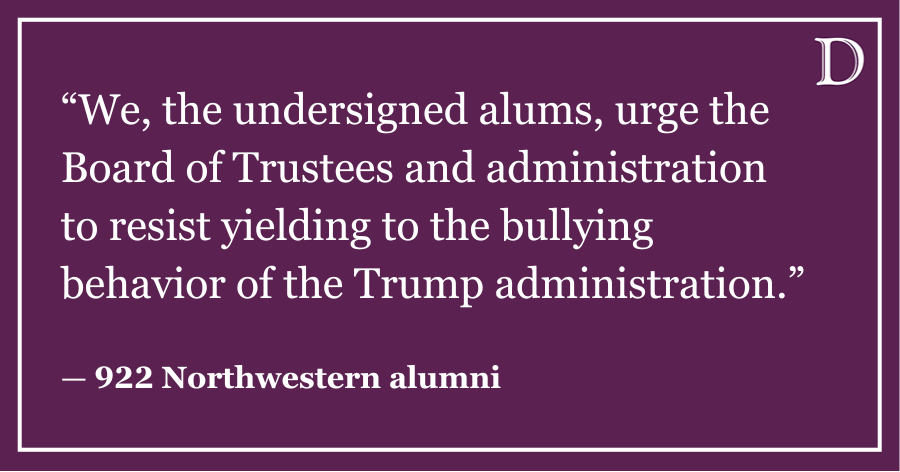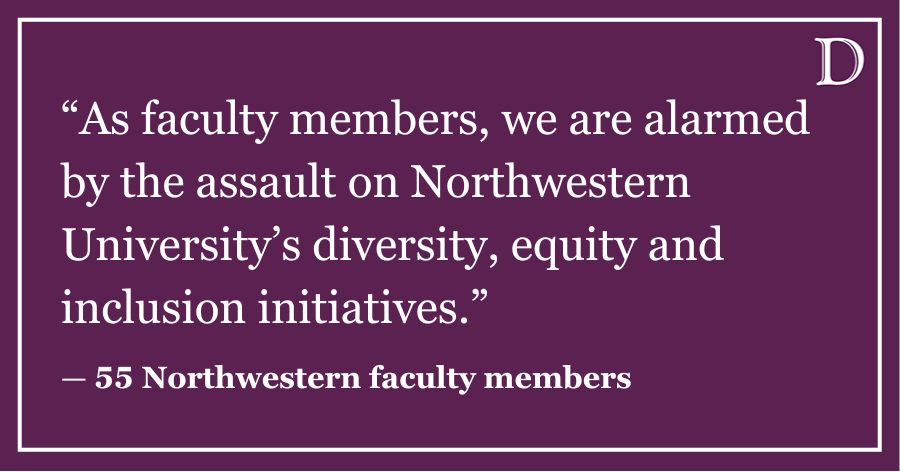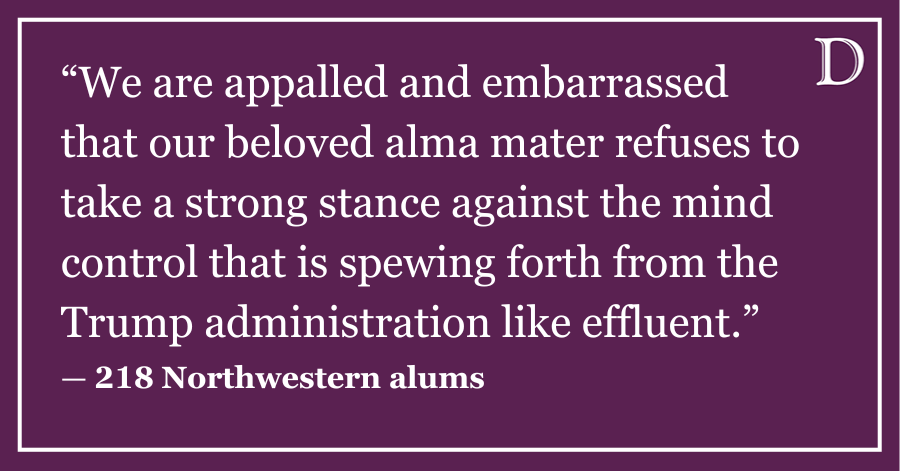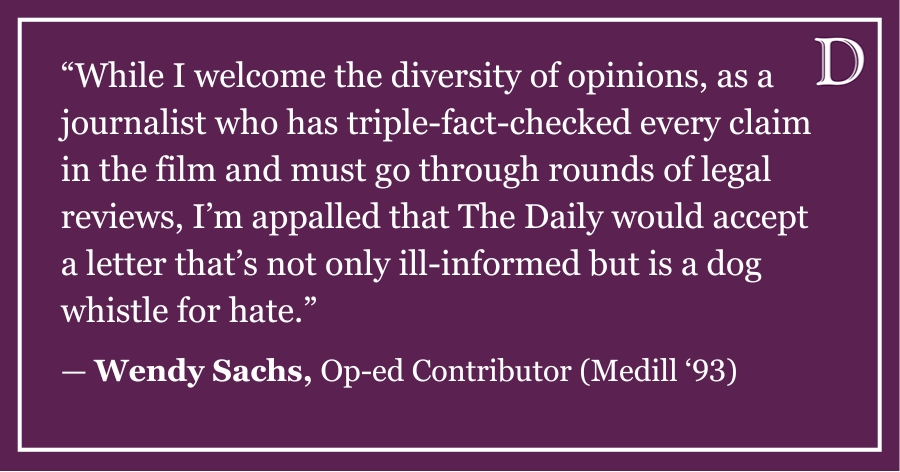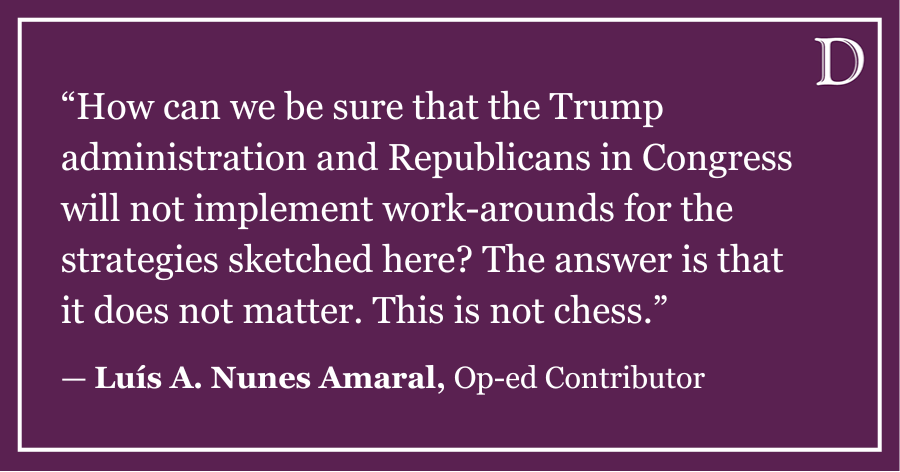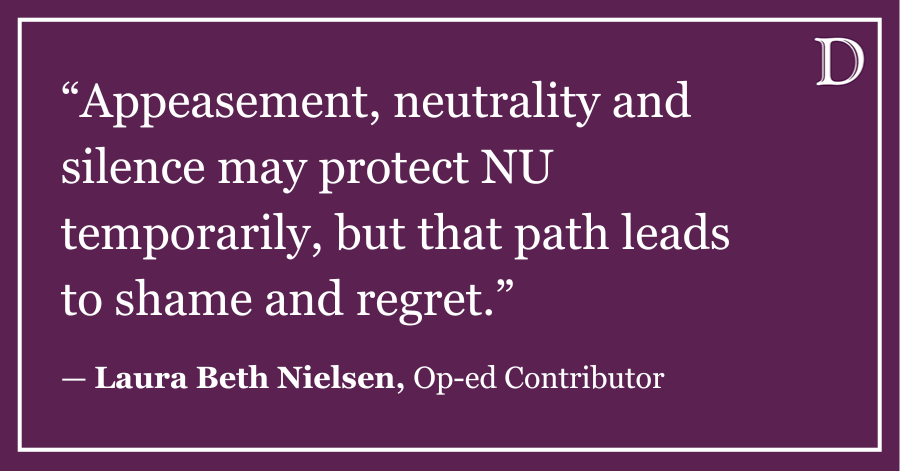This past week, some of the most destructive wildfires in U.S. history have claimed at least 24 lives in Los Angeles, damaging and destroying over 12,000 homes and placing over 153,000 L.A. residents under evacuation orders. Scientists agree that a changing climate, driven primarily by burning fossil fuels, has led to warming temperatures and intense droughts, creating the conditions for extreme and destructive weather events, including wildfires.
Through the devastation and catastrophe in L.A., we understand that the fossil fuel industry has and continues to threaten life as we know it. These past few days in the U.S., we are reminded that climate change spares no one, not even the Pacific Palisades neighborhood in L.A., one of the wealthiest communities in the U.S., that is currently experiencing the worst fire in its history.
We cannot downplay the role that institutions like Northwestern have in the climate crisis. NU’s Central Utility Plant, a natural gas plant located in the middle of the Evanston campus that provides heating and cooling to the University, is a significant carbon emitter in Evanston, and the University is the city’s No. 1 source of greenhouse gas emissions.
This has a critical local impact, with communities in the historically red-lined 5th Ward experiencing higher levels of pollution.
Meanwhile, NU uses the sustainability research and projects of talented students and faculty to purport the University’s image.
SustainNU is NU’s campus-wide program for addressing their contribution to climate change. Their latest sustainability report revolves almost exclusively around the efforts of individual students and faculty.
Their progress reports claim NU is on track to release a yearly sustainability report, but they haven’t done so since 2022. No greenhouse gas emissions inventory has been released since 2021, and a sustainability plan has not been released since 2017.
NU is a national and global leader in nearly every academic field. But NU’s sustainability efforts as an institution are based on publicity stunts and greenwashing.
NU currently has a goal of reaching net-zero emissions by 2050. This goal, which has not been updated since 2017, fails to sufficiently address the impacts of greenhouse gas emissions on local, national and global scales.
NU’s plan would use carbon offsets instead of substantial emissions reductions to meet its goals. While the University aspires to be “exemplary in addressing sustainability, climate change and the opportunities and challenges they pose,” their lack of transparency regarding the action they are (not) taking and their refusal to take real action shows otherwise.
If the NU administration has true interest in meeting their own stated policy goals, they will support the Evanston Healthy Buildings Ordinance. The ordinance, which calls for buildings of 20,000 square feet or more to run completely on renewable energy by 2050, is a critical step towards reducing emissions in Evanston and leading the way for cities nationwide.
If NU refuses to support the ordinance, they are dragging their feet — and losing money — on a policy that will very quickly become the norm as the energy transition speeds up. It would devastate NU’s image as a global trailblazer and have consequences for future students, investments and the climate.
Fossil Free’s campaign for a Fossil Free Campus aligns closely with the Healthy Buildings Ordinance and is crucial to ensure the University takes progressive action to respond to the climate crisis.
We are demanding full transparency of emissions and sustainability from the University, a comprehensive plan to transition to renewable electricity, transparent use of impactful renewable energy credits and a transition to a renewable Central Utility Plant.
The Healthy Buildings Ordinance needs votes from the majority of the Evanston City Council in order to pass and currently has the support of Mayor Daniel Biss and six of the nine council members. A draft of the ordinance was introduced at the City Council meeting on Jan. 13 and will be voted on at the council meeting on the 27.
As we watch the destruction of fires on the West Coast, we encourage Evanston and NU community members to take the necessary action that this moment requires by signing Fossil Free’s petition for a Fossil Free Campus, joining the Healthy Buildings Coalition and voicing support for climate action at upcoming city council meetings.
We as Fossil Free members demand that the University recognize its role in the climate crisis and take meaningful steps to reduce its emissions by supporting the Healthy Buildings Ordinance and by meeting the demands of Fossil Free Campus. We call on the University to meet its obligation to its students, to the Evanston community and to the world and act now.
In Solidarity,
Fossil Free Northwestern
Fossil Free NU is a group of students, faculty, staff, alumni, and community members calling on Northwestern University to divest its endowment from fossil fuels and reinvest in the Evanston community and in life-giving institutions. Fossil Free can be contacted at FossilFreeNorthwestern@gmail.com. If you would like to respond publicly to this op-ed, send a Letter to the Editor to opinion@dailynorthwestern.com. The views expressed in this piece do not necessarily reflect the views of all staff members of The Daily Northwestern.





